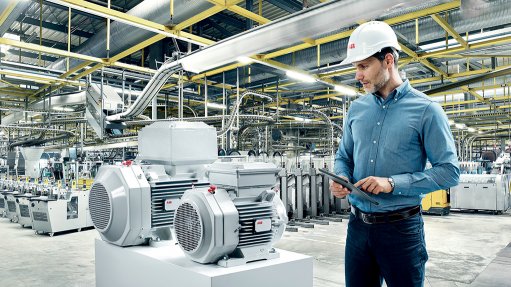Karoo fracking debate triggers legislative overhaul
By: Matt Ash
The debate surrounding hydraulic fracturing, or fracking, of the Karoo’s potentially massive shale gas reserves continues to rage. The issue has also triggered major legislative changes.
The fact is South Africa is currently beset by a number of socioeconomic challenges. In a bid to tackle these issues, government has introduced a number of initiatives, including the National Development Plan (NDP) and the Integrated Resource Plan (IRP).
The aim of the NDP is to eliminate poverty and reduce inequality by 2030 in the main through dramatically improving and expanding the country’s infrastructure. The IRP outlines government’s strategy for electricity generation to 2030 and is premised on a scenario which estimates that South Africa will require a staggering 41 346 MW of new power generating capacity by that time.
Although a mix of energy sources has already been earmarked for providing this capacity over the coming years, the discovery of shale gas in the Karoo basin has changed this outlook.
According to recent estimates, the Karoo basin could potentially play host to the world’s eighth-largest reserve, which has the potential to provide South Africa with hundreds of years of energy worth trillions of rands. However, to reach and harvest the gas, the contro- versial method of fracking would have to be employed.
Those in favour of fracking believe that the reserves could be the answer to South Africa’s energy woes and could create thousands of jobs, which dovetails neatly with both the NDP and the IRP. Unsurprisingly, government supports the exploitation of the resource, and has gone so far as including it as a key pillar of the NDP.
Much of the debate surrounding the fracking issue stems from the fact that South Africa currently does not have any fracking-specific regulations. The fact that the current exploration and production rights framework weighs heavily in favour of first movers has also proven a major sticking point.
Given the drawbacks, a moratorium on exploration licensing was imposed in 2011. Following an investigation, the moratorium was lifted and the original exploration applications are now being processed. The applications will, however, be processed in line with the new regulatory framework, which will likely favour South African interests and, according to government, be robust and enforce best practice.
A number of sweeping legislative changes have also been proposed. In addition to an augmented framework, government has also introduced an Infrastructure Development Bill, which addresses some of the key obstacles to shale gas development, in particular a landowner’s right to refuse to apply for rezoning.
In a nutshell, the Bill, which includes an expropriation clause, is designed to speed up strategic infrastructure delivery by extending State powers for the expropriation of land and shortening the approval time for projects by govern- ment authorities. The fact that shale gas development has been identified as a strategic initiative under the NDP is undoubtedly a key driver behind the Bill.
Under the present framework, a landowner is obliged to give mineral rights holders free and unfettered access to the land without compensation for the unhindered exploration for, and exploitation of, mineral resources.
However, only a landowner can apply for rezoning of property appropriate for the mining activity concerned. The landowner can refuse to rezone on environmental grounds. If the land is not zoned appropriately, the landowner can effectively prevent the mineral rights holder from exercising his or her rights.
Should the Bill be passed into law, it will grant statutory powers to a Presidential Infrastructure Coordination Commission (PICC) to expropriate land required for development in terms of the NDP.
The power of the State to expropriate land already exists under separate legislation – but that provides for compensation on a ‘willing buyer, willing seller’ basis. As long as the seller disputes the value of the land and this remains unresolved by a court, no expropriation can take place.
The Bill proposes a far-reaching departure from this principle. Instead, the Bill proposes compensation on a fair-market-value basis, with various mechanisms proposed on how fair market value is to be determined.
Importantly, the Bill effectively provides for the State to expropriate at its proposed value, while allowing the landowner the right to approach the courts after expropriation has occurred, for a fresh valuation. The law would effectively enable the State to acquire land for purposes of the NDP and would prevent reluctant landowners from stalling the acquisition.
Unsurprisingly, the Bill has drawn criticism from various quarters. I agree that the Bill draft is not perfect, but drafting can be changed and the purpose should be viewed in the context in which it is intended – specifically, to fast-track development and improve the country’s long-term infrastructure outlook.
It should also come as some comfort that various checks and balances have been built into the legislation. Aspects such as the current use of the land, the history of its use, the history of its acquisition by the current owner and any investment in the property would also be taken into consideration when expropriating.
Overall, in my view, the Bill is fairly positive in that it will facilitate fundamentally important projects, such as that which the Karoo shale gas presents, without ousting the oversight of the courts.
That said, it cannot be denied that there are aspects of the Bill which need to be addressed. Unfortunately, the fact remains that South Africa is grappling with major socioeconomic challenges that need to be tackled. The Bill and the augmented mining framework are government’s answer to these issues.
- Ash is head of Norton Rose Fullbright's sub-Saharan African energy division.
Comments
Press Office
Announcements
What's On
Subscribe to improve your user experience...
Option 1 (equivalent of R125 a month):
Receive a weekly copy of Creamer Media's Engineering News & Mining Weekly magazine
(print copy for those in South Africa and e-magazine for those outside of South Africa)
Receive daily email newsletters
Access to full search results
Access archive of magazine back copies
Access to Projects in Progress
Access to ONE Research Report of your choice in PDF format
Option 2 (equivalent of R375 a month):
All benefits from Option 1
PLUS
Access to Creamer Media's Research Channel Africa for ALL Research Reports, in PDF format, on various industrial and mining sectors
including Electricity; Water; Energy Transition; Hydrogen; Roads, Rail and Ports; Coal; Gold; Platinum; Battery Metals; etc.
Already a subscriber?
Forgotten your password?
Receive weekly copy of Creamer Media's Engineering News & Mining Weekly magazine (print copy for those in South Africa and e-magazine for those outside of South Africa)
➕
Recieve daily email newsletters
➕
Access to full search results
➕
Access archive of magazine back copies
➕
Access to Projects in Progress
➕
Access to ONE Research Report of your choice in PDF format
RESEARCH CHANNEL AFRICA
R4500 (equivalent of R375 a month)
SUBSCRIBEAll benefits from Option 1
➕
Access to Creamer Media's Research Channel Africa for ALL Research Reports on various industrial and mining sectors, in PDF format, including on:
Electricity
➕
Water
➕
Energy Transition
➕
Hydrogen
➕
Roads, Rail and Ports
➕
Coal
➕
Gold
➕
Platinum
➕
Battery Metals
➕
etc.
Receive all benefits from Option 1 or Option 2 delivered to numerous people at your company
➕
Multiple User names and Passwords for simultaneous log-ins
➕
Intranet integration access to all in your organisation


















